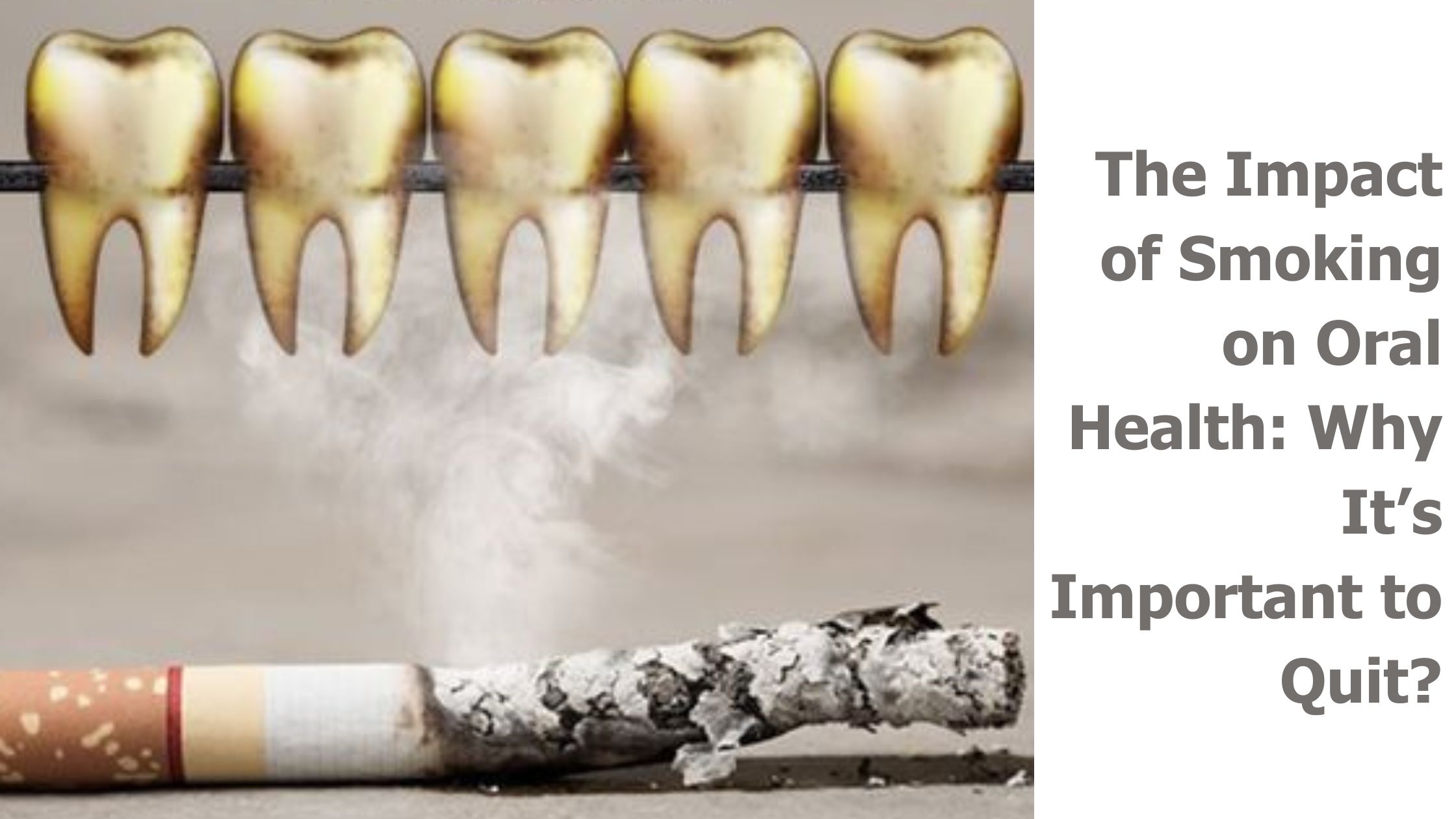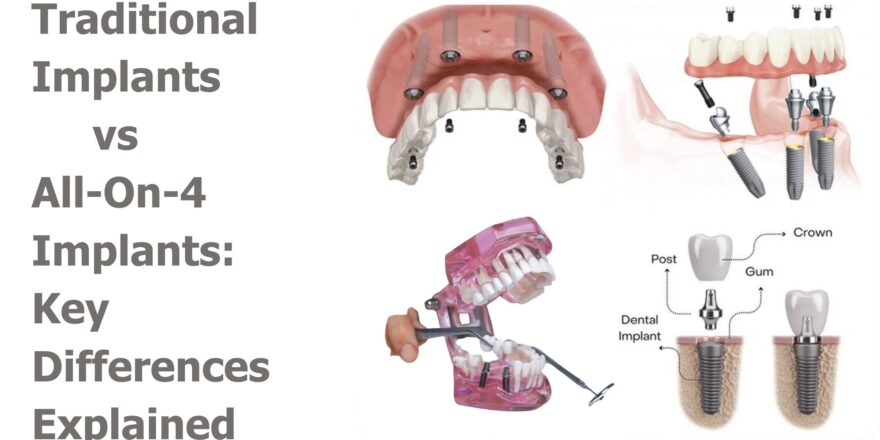Smoking is a well-known hazard to overall health, but its specific impact on oral health is often underestimated. The detrimental effects of smoking extend far beyond the lungs and heart, significantly affecting the teeth, gums, and overall oral hygiene. For those seeking a best dentist in Dubai, it’s essential to understand the profound consequences of smoking on oral health and the compelling reasons to quit. This blog delves into the various ways smoking impacts oral health and provides insights into why giving up smoking is crucial for a healthy mouth and a better quality of life.
Understanding the Connection Between Smoking and Oral Health
Smoking introduces harmful chemicals into the mouth, which can lead to a myriad of oral health issues. Here’s a detailed look at how smoking affects various aspects of oral health:
Gum Disease
Smoking is a major risk factor for periodontal (gum) disease. The chemicals in tobacco interfere with the normal function of gum tissue cells, making smokers more susceptible to infections like periodontitis. Symptoms of gum disease include red, swollen gums, bleeding while brushing or flossing, and bad breath. Over time, untreated gum disease can lead to tooth loss as the supporting bone and tissue around the teeth deteriorate.
Tooth Discoloration and Bad Breath
One of the most immediate and noticeable effects of smoking is tooth discoloration. Nicotine and tar from cigarettes can stain teeth, turning them yellow or brown over time. Additionally, smoking causes bad breath (halitosis) due to the presence of tobacco particles in the mouth, reduced saliva production, and an overall unhealthy oral environment.
Increased Risk of Oral Cancer
Oral cancer is one of the most severe consequences of smoking. Tobacco use is directly linked to cancers of the mouth, throat, lips, and tongue. Early signs of oral cancer include sores, lumps, or rough spots in the mouth, difficulty chewing or swallowing, and unexplained bleeding. Regular dental check-ups can aid in early detection, but the best preventive measure is to quit smoking altogether.
Impaired Healing and Reduced Immunity
Smoking impairs the body’s ability to heal, which is particularly concerning for oral health. This slowed healing process affects everything from minor mouth sores to major dental surgeries. Smokers often experience complications and slower recovery times after tooth extractions, periodontal treatments, and other oral surgeries due to reduced blood flow and a weakened immune response.
Increased Plaque and Tartar Buildup
Smoking promotes the accumulation of plaque and tartar on the teeth. Plaque is a sticky film of bacteria that forms on teeth and gums, and if not removed, it hardens into tartar, leading to further gum disease and tooth decay. Smokers tend to have more tartar buildup, which requires professional dental cleaning to manage.
Reduced Sense of Taste and Smell
The chemicals in cigarettes can dull the senses of taste and smell. Smokers often find that they cannot enjoy food flavors and aromas as much as non-smokers. This sensory impairment can affect appetite and overall quality of life.
The Benefits of Quitting Smoking for Oral Health
Quitting smoking can significantly improve oral health and overall well-being. Here are some of the benefits that come with giving up this harmful habit:
Reduced Risk of Gum Disease
Once you quit smoking, your risk of developing gum disease decreases. The healing process begins, and with proper oral hygiene and regular dental visits, your gums can recover from the damage caused by smoking. Healthy gums mean a reduced risk of tooth loss and better overall oral health.
Improved Breath and Aesthetics
Quitting smoking can lead to fresher breath and whiter teeth. Without the constant exposure to nicotine and tar, your teeth will gradually lose the yellow and brown stains, restoring their natural color. Additionally, the absence of tobacco particles in your mouth will help reduce bad breath.
Lower Risk of Oral Cancer
The risk of developing oral cancer diminishes significantly after quitting smoking. The body starts to repair itself, and the likelihood of cancerous cells forming in the mouth decreases. This not only saves your oral health but also your life.
Enhanced Healing and Immunity
After quitting smoking, your body’s healing ability and immune response improve. This means faster recovery from dental procedures and a lower risk of post-surgical complications. Your overall oral health will benefit from a stronger immune system, making it easier to fight off infections and maintain healthy gums and teeth.
Decreased Plaque and Tartar Formation
With smoking out of the picture, plaque and tartar buildup are significantly reduced. This makes it easier to maintain good oral hygiene and reduces the need for frequent professional dental cleanings. Your teeth and gums will be healthier and less prone to decay and disease.
Restored Senses of Taste and Smell
Quitting smoking allows your senses of taste and smell to recover. You’ll be able to enjoy food and drinks more fully, enhancing your overall quality of life. This sensory restoration can also help improve your appetite and nutrition.
Tips for Quitting Smoking
Quitting smoking is challenging, but the benefits for your oral and overall health are well worth the effort. Here are some tips to help you on your journey to becoming smoke-free:
Seek Professional Help
Consult with healthcare professionals who can provide guidance and support. Dentists can offer specific advice on maintaining oral health during the quitting process, while doctors can suggest medications or therapies to aid in quitting.
Use Nicotine Replacement Therapy (NRT)
NRT products, such as nicotine gum, patches, lozenges, and inhalers, can help reduce withdrawal symptoms and cravings. These products provide a controlled dose of nicotine without the harmful chemicals found in cigarettes.
Adopt Healthy Habits
Replace smoking with healthier habits such as exercising, eating nutritious foods, and practicing stress-relief techniques like meditation or yoga. Keeping your hands and mind busy can help distract you from cravings.
Stay Persistent
Quitting smoking is a process that may involve setbacks. It’s important to stay persistent and not give up. Each attempt brings you closer to becoming smoke-free, and the long-term health benefits are invaluable.
Final Words
The impact of smoking on oral health is profound and far-reaching. From gum disease and tooth discoloration to an increased risk of oral cancer and impaired healing, the detrimental effects of smoking are clear. However, the benefits of quitting smoking are equally compelling. Improved oral health, fresher breath, reduced risk of serious diseases, and a better quality of life are just a few of the rewards of giving up smoking. If you’re considering quitting, seek support from healthcare professionals, adopt healthy habits, and stay persistent. Your mouth and overall health will thank you for it.





